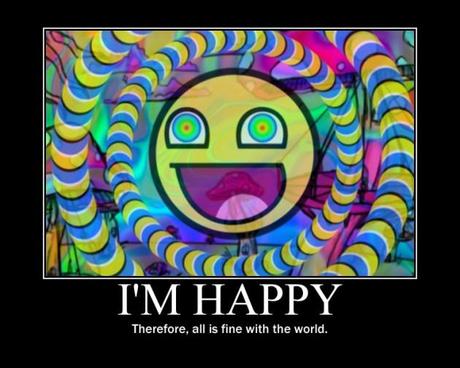As an individual citizen, I would like to live in the freest society possible. One that offers me the greatest range of action and the least restrictions upon my person. Though, if given the choice to be the leader of say, a nation, between being a democratic leader who can only serve two terms, or a dictator for life, I would almost always lean towards dictatorship, even though I recognize the necessity of an accountable government.
In a similar light, while I recognize the necessity of conscription in small states such as Singapore and Israel, both for national defense and the inculcation of national ideas & values (indoctrination), I still feel that if I were to be conscripted, as an individual, it would be a waste of time and talent. Of course, let me state that the contradictions and the disconnect between understanding and acknowledgement (of this nature) does not begin and end with me. It is something that is prevalent in almost all, if not all persons, whether they consciously recognize it or not.
For just about everything that people think and do, the priority towards the self far outweighs all other considerations. In fact, these “other considerations” are often hijacked as vehicles to carry out the plan to benefit the self, as well as to mask the true intent, from others and most importantly from oneself. Why would anyone want to hide the truth from himself, you ask? Consider the following statements.
Religious folks do not help others because others are in need of help, they help others to score points with God(s) and get into Heaven (or Valhalla or whatever you may call that highest possible religious rewards/incentive). Also, they avoid doing whatever ‘evil’ the God(s) dislikes to avoid getting into Hell (or whatever the ultimate religious disincentive is).
The Humanists helps others for many reasons they state publicly, but really, it all comes down to making themselves feel good. All those public reasons are merely vehicles to justify their acts of charity. The bottom line is getting a kick out of their actions. That and protecting a self-image as a caring and responsible member of society.

The Bottom Line for All Human Behavior
Consider also why many communities support the construction of more prisons but would vehemently oppose the construction of even one said prison in their community. They know prisons are good because it keeps the society safe from its misfits. They know prisons create jobs and having one in town would be good for the local economy. But if somebody wants to build it 2 blocks away, you can be damn sure everyone in the area would fight tooth and nail to have it relocated elsewhere, out of the way, out of sight.
The same thing can be said for heavy industries and manufacturing, recycling and water treatment plants, and in some cases, military bases. Yes, they are necessary, but if its in my backyard it’s definitely evil.
Why do people think this way? What is it that drives this disconnect between understanding of facts and acknowledgement of it? There’s plenty of reasons that can be given to answer that, but it all comes down to just one thing, vested interests.
People would support or oppose things pretty much based on how it affects their vested interests. This is also why we see the contradictions of support and opposition for the same things by the same people. Take the case of prison construction I have mentioned above. It is good for the vested interests of most in the society that those who are out of line with the established order within said society be locked up in a place where they can be a menace no more. Thus, the idea that more prisons should be constructed is likely to receive widespread support, particularly from communities plagued by crime. Still, these same communities are likely to oppose the construction of said prisons within their backyard. Why? Whether it is because of a possibility of falling property prices or concerns over the safety of the community in cases of prison breaks, the underlying reason remains the same. It is because such events bear what is perceived by people in that community to be great personal consequences, in other words, it affects their vested interests.
Now, some of you might have started to think from a couple of paragraphs back what load of bollocks these sentences I’ve been spewing are. The religious among you might deny that you are doing good and avoiding evil in order to score some points with God(s). The humanists among you might say that it really is about helping other people and improving their livelihood, your own personal feel-good sensations be damned.
Yes, take it however you like. After all, most people are decent enough to do these calculations of profits and loss towards their ‘self’ out of the mainstream of conscious. Indeed, most of the underlying factors that we calculate to form our perception on events are most likely done in the subconscious. With the results informed to us through powerful, yet often subtle emotions. Such that most would probably never realize that such calculations even take place.

To think is one thing. But to think why you think what you think, it's another thing altogether.
In case you still don’t believe what I am saying, a case in point, why do you think that highly-educated, highly-intelligent CEOs and managers on Wall Street made some of the biggest financial mistakes in our recent history? Why do you think that they actually go against conventional wisdom of management & investment to pile on tremendous risks for their companies that they, had they been an outside observer, would conclude to be an insanity? Are they stupid? Are they crazy? Nope, stupid people wouldn’t make it past the kind of education they received but as for being crazy, that’s for another article to discuss.
Really though, it is not stupidity that leads them to irrational behaviors, it is dependence on and ignorance of their emotions, or rather, dependence upon and ignorance of the feedback from the subconscious calculations of profits and loss towards the ‘self’. Most people do not realize this because their subconscious would have hidden these calculations from them. They will thus not realize that their judgment is subject to irrationality. Why? That’s why. There is a great deal of irony in finding it imperative to look after one’s self-interest while at the same time hiding it from oneself because the conscious realization of such a thought process would reflect badly (and therefore damaging) upon the ‘self’, and as such, not in one’s self-interest. After all, people brought up to think of themselves as the ‘allies of justice’* would not accept the idea that their very ‘justice’ is merely for themselves.

In case you're wondering how I came up with these thoughts. It's just that episode of melancholy I had. You know, that episode where I got to a bench in the middle of a park somewhere, lying down on it and looking skywards while exploring the depth of my own mind. Yep, I didn't take any pictures at that time. So make do with this artist rendition of what I saw that day.
The point I’m trying to bring across is that self-interest forms the foundation for all human action, whether they would acknowledge it or not. And that their involvement in any event or opinions of any event is decided by how those events affect their ‘self’. Why would religious nutjobs kill people over the burning of some books? Why would some nationalists vehemently object to the construction of a place of worship in a multicultural metropolis? Again, because it affects their ‘self’.
Now, you might argue that in none of those cases did the events affect the person or personal well-being of those involved. That’s right, but I’ve been mentioning ‘self’ with a single quotation mark (‘ ‘), haven’t I? Indeed, for most people, their person forms a central part of their ‘self’ but it is merely a part and therefore a subset. It is not its entirety. The ‘self’ is much broader, it includes everything that a person considers to be part of himself. It is essentially his ego, with ego being the sum of all that a person considers to be a part of his ‘self’.
Therefore, the religious nutjob kills people over the burning of some books because he considers those books to be an important part of his ‘self’. Similarly, the nationalist objects to the construction of a place of worship because he considers the location of the planned construction to be significant to his ‘self’ and said construction threaten that concept of ‘self’.
So, while indeed multiple reasons for any human action can be given, and multiple excuses manifested, the bottom line will always be the same. It is about I, My & Me and how everything, how all those things, affect it.
*Or the sort, most parents won’t teach their kids to be the allies of evil now, would they? Well, probably save for a few evil geniuses in their underground lairs.

